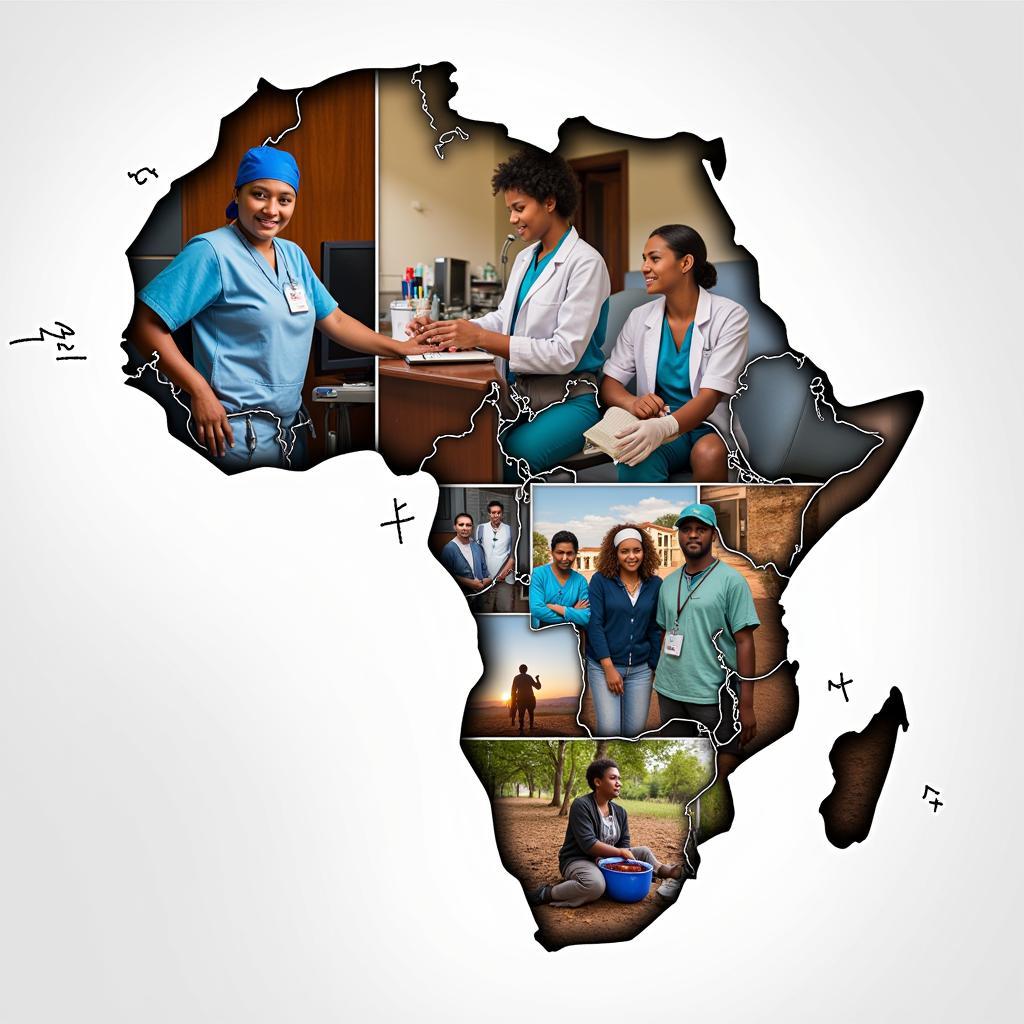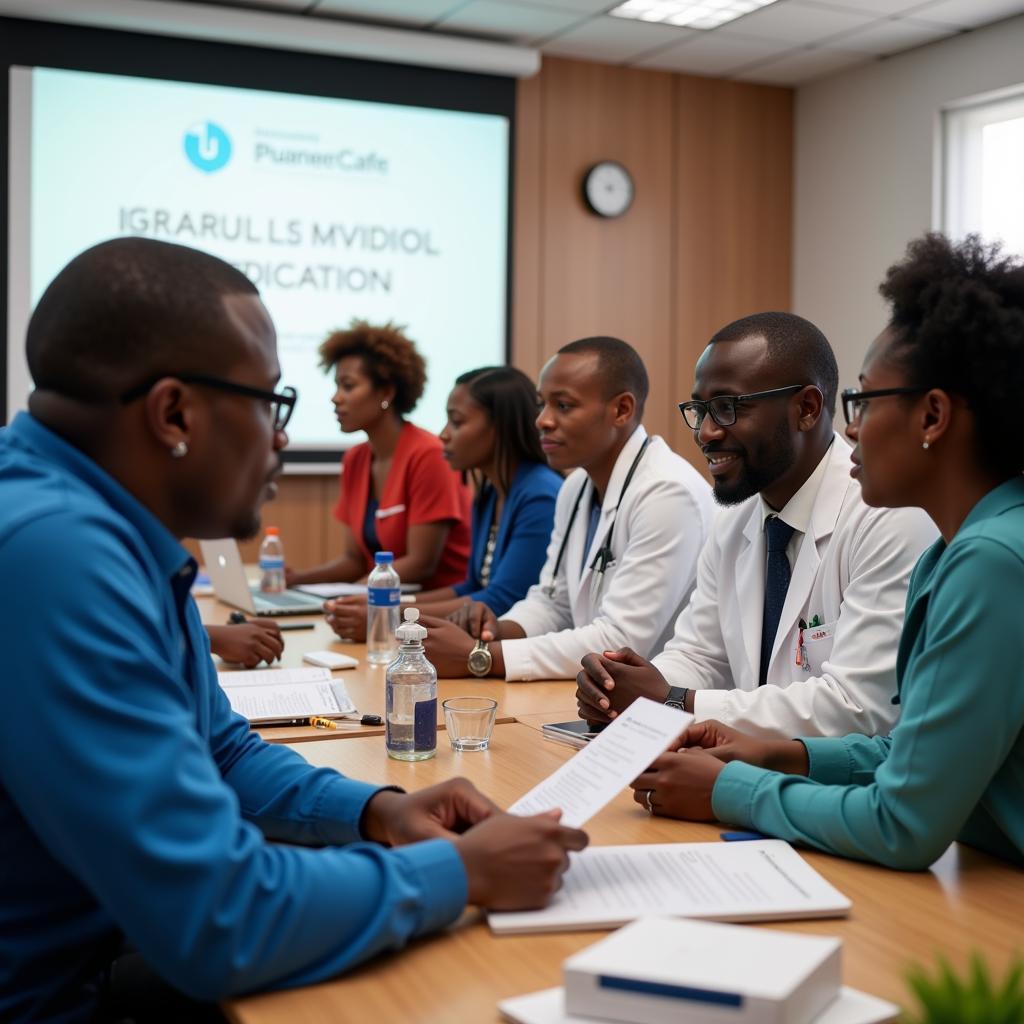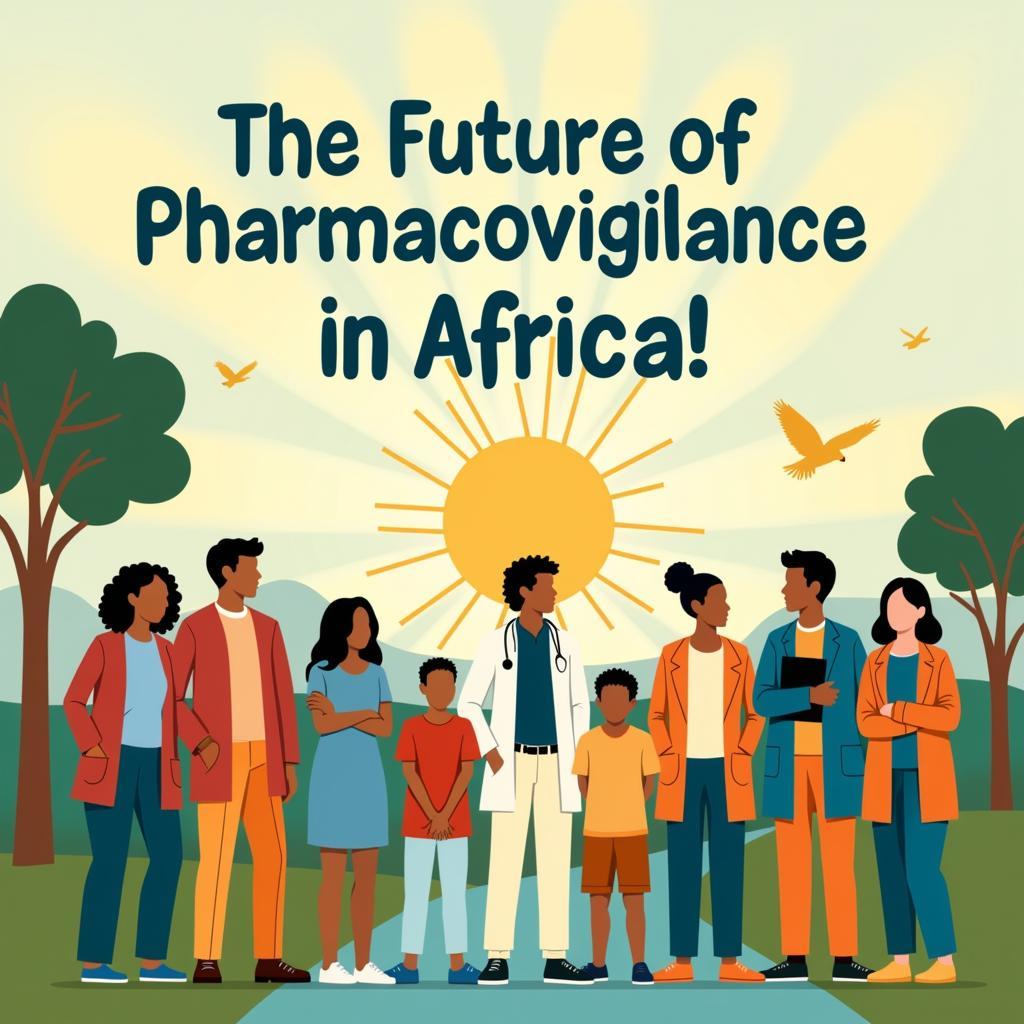Navigating the Landscape of African Countries’ Pharmacovigilance
Pharmacovigilance, the science and activities related to the detection, assessment, understanding, and prevention of adverse effects or any other drug-related problems, is crucial for ensuring the safe and effective use of medicines. In the context of African countries, where healthcare systems face unique challenges and opportunities, pharmacovigilance plays a pivotal role in safeguarding public health.
 African Countries Pharmacovigilance Challenges
African Countries Pharmacovigilance Challenges
The Evolving Landscape of Pharmacovigilance in Africa
African countries have made significant strides in recent years in developing and strengthening their pharmacovigilance systems. However, several factors influence the landscape:
- Diverse Regulatory Frameworks: Regulations governing pharmacovigilance vary significantly across the continent. Some countries have well-established systems, while others are in the early stages of development.
- Limited Resources: Many African nations face resource constraints, including a lack of trained healthcare professionals, financial limitations, and inadequate infrastructure, impacting the effectiveness of pharmacovigilance programs.
- Increasing Access to Medicines: The growing availability of pharmaceuticals, often from diverse international sources, necessitates robust pharmacovigilance to monitor the safety of a wider range of medicines.
 African Countries Pharmacovigilance Collaboration
African Countries Pharmacovigilance Collaboration
Key Strategies for Strengthening Pharmacovigilance in African Countries
- Harmonization of Regulatory Frameworks: Developing consistent guidelines and regulations across countries can facilitate information sharing and collaboration in pharmacovigilance efforts.
- Capacity Building: Investing in training healthcare providers, pharmacists, and regulatory staff in pharmacovigilance principles, practices, and reporting systems is essential.
- Public Awareness: Educating the public about the importance of reporting adverse drug reactions empowers individuals to actively participate in ensuring medication safety.
- Technology Adoption: Implementing electronic reporting systems and utilizing mobile technology can improve the efficiency and reach of pharmacovigilance programs, especially in remote areas.
The Role of International Collaboration
International collaboration is paramount in supporting African countries’ pharmacovigilance efforts:
- Sharing Best Practices: Developed countries and international organizations can share their expertise and successful strategies with African nations.
- Technical Assistance: Providing technical support, training, and resources can help build sustainable pharmacovigilance systems.
- Financial Support: Funding from international donors and organizations is crucial to strengthen infrastructure and capacity.
 African Countries Pharmacovigilance Future
African Countries Pharmacovigilance Future
The Future of African Countries’ Pharmacovigilance
The commitment to improving pharmacovigilance in African countries is evident in the progress made in recent years. By addressing existing challenges, fostering collaboration, and leveraging technology, these nations can build robust systems that ensure the safe and effective use of medicines for their populations. International collaboration will continue to be instrumental in supporting these efforts and achieving sustainable progress in this critical area of public health.
Conclusion
Pharmacovigilance in African countries is at a pivotal juncture, with both challenges and opportunities shaping its trajectory. By prioritizing capacity building, adopting technology, and fostering partnerships, these nations can strengthen their pharmacovigilance systems, safeguarding the health and well-being of their citizens.
FAQs
1. How can I report an adverse drug reaction in my country?
Each country has a National Pharmacovigilance Centre where you can report adverse drug reactions. You can find contact information for your country’s center online or by asking your doctor or pharmacist.
2. What information should I include when reporting an adverse drug reaction?
Provide details about the medication, including its name and dosage, a description of the adverse reaction, when it started, and how long it lasted. Also, include your contact information.
3. What are the benefits of reporting adverse drug reactions?
Reporting contributes to a safer and more effective use of medicines for everyone. It helps identify new side effects, monitor known ones, and ultimately protect public health.
Need Support?
For any assistance or inquiries, please don’t hesitate to contact us:
- Phone Number: +255768904061
- Email: [email protected]
- Address: Mbarali DC Mawindi, Kangaga, Tanzania
Our dedicated customer support team is available 24/7 to assist you.


